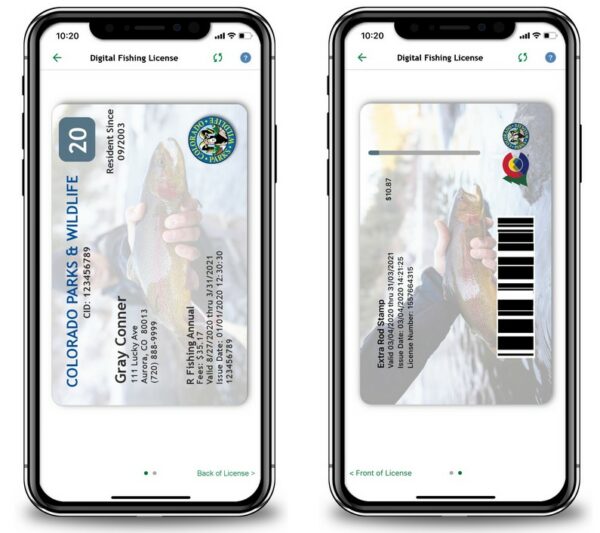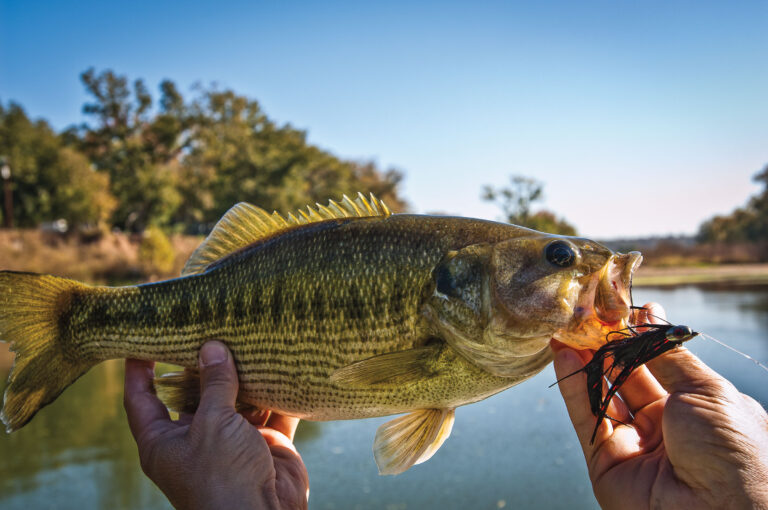Get a Colorado Fishing License: Your Ultimate How-To Guide
Fishing in Colorado is a popular activity. Getting a fishing license is simple and quick.
Colorado offers many scenic spots for fishing enthusiasts. Before you cast your line, you need a fishing license. This ensures you follow state regulations and support conservation efforts. Whether you’re a resident or a visitor, getting a fishing license is essential.
It helps maintain healthy fish populations and protect natural habitats. In this guide, we’ll explain how you can get a Colorado fishing license. We’ll cover the types of licenses available, where to buy them, and the rules you need to follow. Let’s get started so you can enjoy fishing in Colorado’s beautiful waters.

Credit: coloradooutdoorsmag.com
Introduction To Colorado Fishing
Fishing in Colorado offers an experience like no other. With stunning landscapes and diverse water bodies, the state is a paradise for anglers. Whether you’re a beginner or a seasoned pro, fishing in Colorado is a must-try adventure.
Why Fish In Colorado?
Colorado boasts some of the most beautiful fishing spots in the United States. The state has over 6,000 miles of rivers and streams. Plus, there are more than 2,000 lakes and reservoirs. The breathtaking mountain views make fishing here a serene experience. You can find peace and quiet away from the city’s hustle and bustle.
Fishing in Colorado is also a year-round activity. Summer brings warm weather and active fish. Winter offers ice fishing opportunities on frozen lakes. The changing seasons ensure that there’s always something new to explore. You never get bored fishing in Colorado.
Types Of Fish Species
Colorado waters are teeming with a variety of fish species. Rainbow trout are the most popular among anglers. They are beautiful and put up a good fight. Brown trout are also abundant and known for their size and strength.
Brook trout are native to Colorado and are often found in high mountain streams. Cutthroat trout are another native species. They are prized for their colorful markings. In addition to trout, you can find walleye, bass, pike, and catfish in many of Colorado’s lakes and reservoirs.
Each species offers a unique challenge and thrill. Whether you prefer fly fishing or baitcasting, there’s a perfect spot and fish waiting for you in Colorado.

Credit: www.coloradovirtuallibrary.org
Types Of Fishing Licenses
Colorado offers various fishing licenses tailored to different needs. Understanding the types ensures you choose the right one. The main categories include Resident vs Non-Resident licenses and Specialty Licenses.
Resident Vs Non-resident
Colorado provides distinct licenses for residents and non-residents. The costs and duration can vary.
| License Type | Resident | Non-Resident |
|---|---|---|
| Annual | $35.17 | $97.97 |
| 5-Day | N/A | $33.97 |
| 1-Day | $13.90 | $16.97 |
Residents benefit from lower rates. Proof of residency is required. Non-residents pay more but have flexible options.
Specialty Licenses
Specialty licenses cater to specific groups and needs. These include:
- Senior Fishing License – For residents aged 65 and older. Reduced fee of $9.85.
- Youth License – Free for kids under 16. Encourages young anglers.
- Disability License – Available for disabled individuals. Proof of disability needed.
- Combination Licenses – Fishing and hunting combined. Cost-effective for active outdoorsmen.
Specialty licenses ensure everyone has access to fishing. They cater to seniors, youth, and people with disabilities.
Eligibility Requirements
Before you can fish in Colorado, you need to meet certain eligibility requirements. This ensures everyone follows the state’s fishing regulations. Let’s dive into the key eligibility criteria you need to know.
Age Restrictions
To get a Colorado fishing license, your age matters. Here’s what you need to know:
- Under 16: Kids under 16 don’t need a license. They can fish for free.
- 16 and Older: If you are 16 or older, you need a valid fishing license.
Residency Proof
Proving your residency can affect the type of license you need. Colorado offers different licenses for residents and non-residents. Here’s a quick guide:
| Residency Status | Required Proof |
|---|---|
| Resident | Driver’s License, State ID, or Utility Bill |
| Non-Resident | Any valid government-issued ID |
Make sure you carry the right documents. This helps in a smooth application process.
How To Apply Online
Getting a fishing license in Colorado is easier than ever. Applying online saves time and effort. Follow these simple steps to get your Colorado fishing license without any hassle.
Step-by-step Process
Applying for your Colorado fishing license online is straightforward. Here’s a step-by-step guide to help you:
- Visit the Colorado Parks and Wildlife website: Go to the official site at cpw.state.co.us.
- Create an account: If you are a new user, sign up by providing your details.
- Log in: Use your credentials to log in to your account.
- Choose your license type: Select the type of fishing license you need. Options include annual, daily, and youth licenses.
- Enter personal information: Fill in the required personal details such as name, address, and date of birth.
- Review and confirm: Check all the entered information for accuracy before proceeding.
Online Payment Options
Once you have filled in all the required information, the next step is to make the payment. Colorado Parks and Wildlife offers several online payment options:
- Credit/Debit Card: You can pay using major credit or debit cards like Visa, MasterCard, or American Express.
- Electronic Check: You can also use an electronic check (e-check) for payment.
- PayPal: PayPal is another convenient option available for online payments.
After successful payment, you will receive a confirmation email with your fishing license details. You can print the license or save it on your phone to carry with you.
In-person Application
Visit a local Colorado Parks and Wildlife office to apply in person for your fishing license. Friendly staff will assist with the process. Enjoy fishing in beautiful Colorado waters.
Getting a fishing license in Colorado is easy with an in-person application. This method ensures you have all the correct information and documents. It also provides an opportunity to ask questions and get immediate answers. Here’s a guide to help you through the process.Authorized Locations
You can apply for a fishing license at various authorized locations. These include local wildlife offices and participating retailers. Many sporting goods stores also offer this service. Always check the official Colorado Parks and Wildlife website for a complete list.Required Documents
Make sure you have the required documents before applying. You’ll need a valid ID, such as a driver’s license. Proof of residency is necessary if you’re a Colorado resident. Non-residents will need a valid ID from their home state. For youth licenses, a birth certificate may be needed. Always carry the original documents for verification. “`License Fees And Costs
Getting a Colorado Fishing License involves understanding the costs. License fees and costs vary based on factors such as age, residency, and duration. Knowing the fee structure can help you plan better.
Breakdown Of Fees
Colorado offers different fishing licenses. Resident adults pay around $35 for an annual license. Non-residents pay about $97. One-day licenses cost $14 for both residents and non-residents. Each additional day costs $6.
Youths under 16 fish for free. Seniors aged 65+ get a discount. An annual license for seniors costs $9. The habitat stamp fee is $10.59. This fee helps with conservation efforts. You pay it once per year.
Discounts And Exemptions
Colorado provides discounts for disabled veterans. They can get a free lifetime fishing license. Active military personnel also enjoy benefits. They can buy a license at resident rates. Low-income individuals may qualify for reduced fees.
Some groups do not need a license. These include youths under 16 and residents fishing on free fishing days. Free fishing days occur twice a year. They allow everyone to fish without a license.
Fishing Regulations And Rules
Fishing in Colorado promises thrilling experiences. But respecting local regulations ensures sustainability. Understanding the rules is crucial for every angler. This helps protect fish populations and maintain balance in aquatic ecosystems.
Colorado’s fishing regulations cover various aspects. These include catch limits and seasonal restrictions. Following these rules helps preserve the natural beauty of Colorado’s waters. Let’s dive into the details.
Catch Limits
Catch limits specify the number of fish you can keep. These limits vary by fish species and water body. Following catch limits helps prevent overfishing. This ensures that fish populations remain healthy and abundant.
It’s important to check the specific limits for each water body. Sometimes, special rules apply to certain areas. Always carry a guide or use a reliable app. This helps you stay within the legal limits.
Seasonal Restrictions
Seasonal restrictions protect fish during critical times. Some fish species need time to spawn and grow. Fishing is often limited during these periods. This ensures a healthy population for future seasons.
Different waters may have different seasons. Always check the dates before planning your trip. This helps you avoid unintentional violations. Respecting these times contributes to sustainable fishing practices.

Credit: www.koaa.com
Tips For A Successful Fishing Trip
Planning a fishing trip to Colorado? Make it a memorable one! With the right tips and tricks, you can have an amazing time. Whether you’re a seasoned angler or a beginner, these tips will help you. From picking the best fishing spots to packing essential gear, we’ve got you covered.
Best Fishing Spots
Colorado is full of fantastic fishing spots. Here are some of the best:
- Blue Mesa Reservoir: Known for its large trout and salmon. It’s a must-visit.
- Eleven Mile Reservoir: Great for both beginners and pros. Fish for pike and trout.
- Gore Creek: Perfect for fly fishing. Catch beautiful rainbow trout.
- Rio Grande: Ideal for those seeking solitude. Enjoy fishing in a serene environment.
Essential Gear
Having the right gear is crucial for a successful fishing trip. Here’s what you need:
| Item | Description |
|---|---|
| Fishing Rod and Reel | Choose a rod and reel that suits your fishing style. |
| Bait and Lures | Use live bait or artificial lures to attract fish. |
| Tackle Box | Keep your hooks, sinkers, and other small items organized. |
| Fishing License | Ensure you have a valid Colorado fishing license. It’s mandatory. |
| Clothing | Dress in layers and wear waterproof gear. Bring a hat and sunglasses. |
Remember to pack some snacks and water. Stay hydrated and fueled for a long day of fishing. Happy fishing!
Frequently Asked Questions
How To Get A Colorado Fishing License?
To get a Colorado fishing license, visit the Colorado Parks and Wildlife website. You can purchase it online, at a local retailer, or at a CPW office.
What Types Of Fishing Licenses Are Available?
Colorado offers several types of fishing licenses: annual, daily, and multi-day. There are options for residents, non-residents, and youth.
How Much Does A Colorado Fishing License Cost?
The cost of a Colorado fishing license varies. Resident annual licenses start at $36. Non-resident annual licenses start at $100. Daily licenses are also available.
Can I Buy A Colorado Fishing License Online?
Yes, you can buy a Colorado fishing license online through the Colorado Parks and Wildlife website. It’s quick and convenient.
Conclusion
Securing a Colorado fishing license is straightforward and essential for anglers. It supports conservation and keeps fishing sustainable. Always check the latest regulations before heading out. Enjoy the beautiful waters and diverse fish species Colorado offers. Happy fishing!


